Taliban, Western officials begin talks in Oslo with focus on frozen assets
Representatives of Afghanistan’s Taliban-led interim government and Western diplomats have held three-day talks in Oslo to discuss the rapidly deteriorating humanitarian crisis in the country and push for the release of assets frozen by the US and its allies.
The closed-door meeting on Monday between the Taliban delegation led by the group’s top diplomat Amir Khan Muttaqi and representatives of the US, France, Germany, Italy, the UK, Norway and the European Union comes as millions of people in the crisis-stricken country stare at death and starvation.
Taliban officials have sought the release of international aid worth billions of dollars that was blocked by the US and its allies following their botched exit from the South Asian country August last year.
"We are requesting them to unfreeze Afghan assets and not punish ordinary Afghans because of the political discourse," Taliban delegate Shafiullah Azam was on Sunday quoted as saying by the AP.
"Because of the starvation, because of the deadly winter, I think it's time for the international community to support Afghans, not punish them because of their political disputes."
Western countries have tied the humanitarian assistance to observance of human rights and formation of an inclusive government in Kabul.
"As we seek to address humanitarian crisis together with allies, partners, and relief orgs, we will continue clear-eyed diplomacy with the Taliban regarding our concerns and our abiding interest in a stable, rights-respecting and inclusive Afghanistan," the US special envoy for Afghanistan, Thomas West, stated in a Twitter post on Sunday, clearly aimed at setting the ground rules for the talks.
It's not fair that the world is talking about human rights while deliberately pushing a whole nation to starvation. The world was not dealing with the best government in the past 20 years. Freezing the Afghan economy is not harming the Taliban but the people of Afghanistan.
— Modaser Islami (@mmodaser) January 24, 2022
Since last August, international aid, which financed nearly 80 percent of the war-ravaged country’s budget, has been suspended and Washington has frozen nearly $9.5 billion in assets belonging to Afghanistan’s central bank, contributing to the pitiable plight of millions of Afghans.
This is while unemployment has skyrocketed in the country and civil servants' salaries have not been paid for months, as banks are out of cash and the government has dearth of funds.
According to UN agencies, hunger now threatens 23 million Afghans, or 55 percent of the total population. The world body says it needs $4.4 billion from donor countries this year to address the unfolding humanitarian crisis in the country that the US and its allies militarily occupied for 20 years.
“It would be a mistake to submit the people of Afghanistan to a collective punishment just because the de facto authorities are not behaving properly,” UN Secretary General Antonio Guterres stated on January 21 while addressing the grave humanitarian situation in the country.
While discussions in Oslo were expected to focus on Afghanistan's worsening humanitarian crisis, remarks made by European diplomats prior to the talks appear to focus on the landlocked country’s political and human rights situation.
Pointing out that no country has yet recognized the Taliban-led government, Norwegian Foreign Minister Anniken Huitfeldt, on Friday underlined that the talks would "not represent a legitimization or recognition of the Taliban."
"But we must talk to the de facto authorities in the country. We cannot allow the political situation to lead to an even worse humanitarian disaster," Huitfeldt was quoted as saying in an AFP report.
The Taliban, meanwhile, hope the talks will help "transform the atmosphere of war... into a peaceful situation," group spokesman Zabihullah Mujahid said on Saturday, as quoted in the report.
He said the group has "taken steps for meeting the demands of the Western world and we hope to strengthen our relations through diplomacy with all the countries, including European countries and the West in general."
On the first day of their three-day visit to Oslo, the Taliban delegation on Sunday met with Afghan civil society members -- including women activists and journalists -- for talks on human rights.
Joint statement of the one-day meeting between the Acting Government of Afghanistan and a number of Afghan personalities in the Kingdom of Norwayhttps://t.co/43LMMX2Qkn pic.twitter.com/j1vRW4BYAN
— Abdul Qahar Balkhi (@QaharBalkhi) January 23, 2022
One of those attending the meetings, women's rights activist Jamila Afghani, described it as “a positive icebreaking meeting," noting that the Taliban "displayed goodwill.”
Meanwhile, in a Twitter post, Mujahid, who is also the deputy minister for information and culture, emphasized that "all Afghans need to work together for better political, economic and security outcomes."
Back in December, the UN Security Council unanimously adopted a resolution to help humanitarian aid reach Afghans, while seeking to keep funds out of the Taliban hands. Although the resolution was welcomed by the Taliban authorities as a "good step," but nothing came out of the move.
The Taliban have warned Western diplomats that insisting on sanctions as a means to pressure their governance could undermine security and trigger a wave of economic refugees.
The UN's special representative for Afghanistan has already warned that the country is "on the brink of a humanitarian catastrophe" and that its collapsing economy is heightening the risk of terrorism.
Trump 2.0 and its possible implications on Ukraine war, NATO and Europe
Israeli commander exposed troops to resistance fire to steal plasma screens
Iran lifts ban on WhatsApp, Google Play
VIDEO | Palestinian childhood under threat
Yemeni forces strike Israeli military site with hypersonic missile
Yemeni missiles alter US, Israel’s calculations: Iranian FM
Israel provides full support for theft of aid to starve Gazans: Report
'Israel booby-trapped walkie-talkies, pagers years before Lebanon blasts'


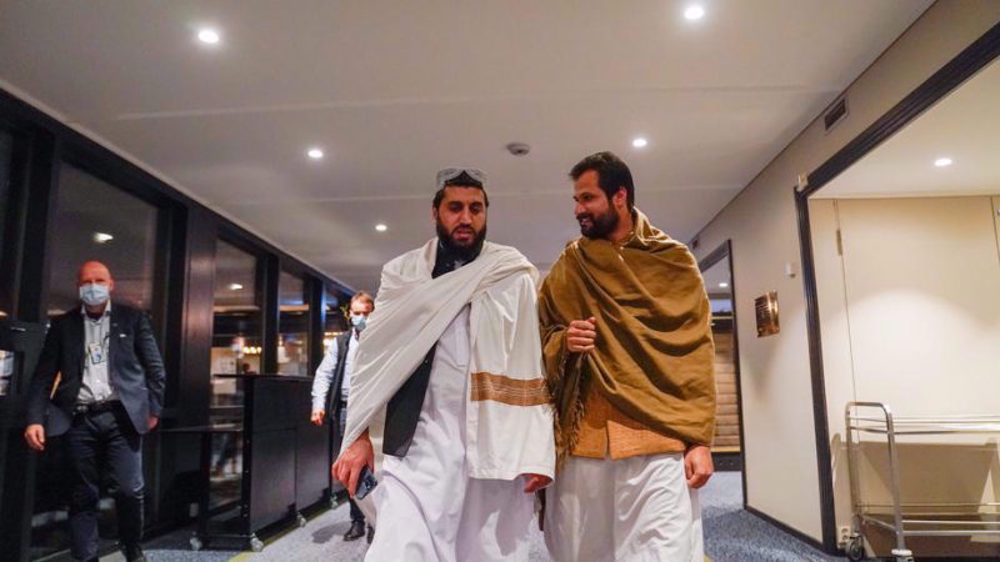
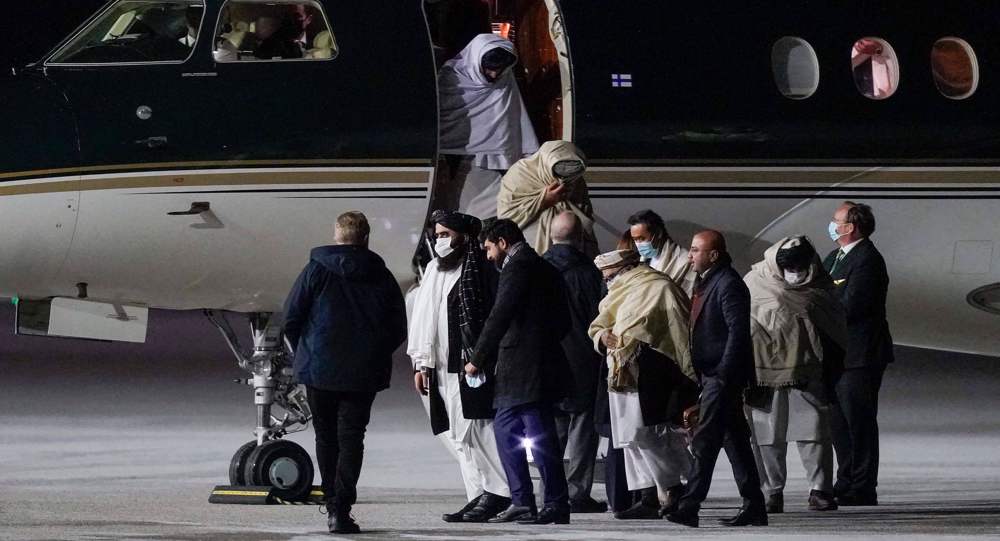
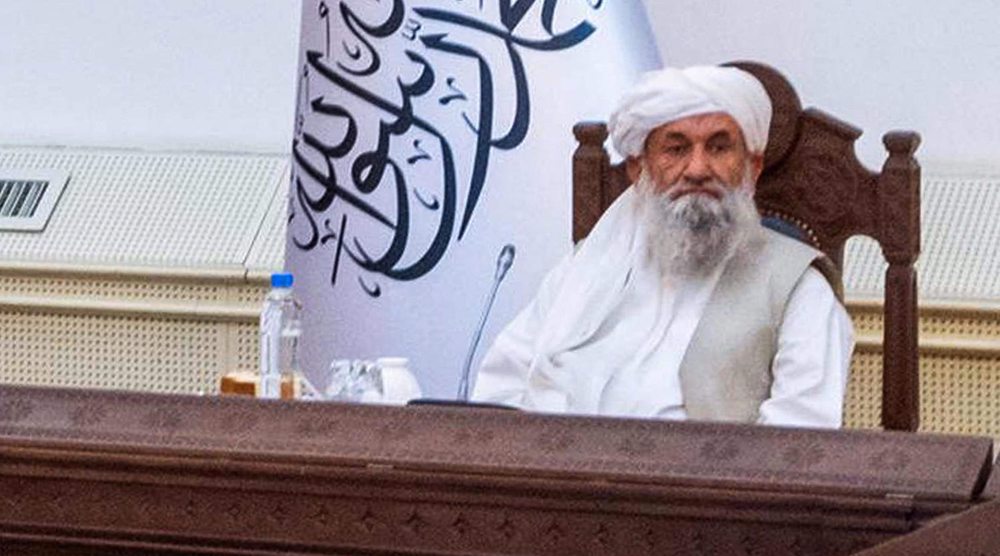

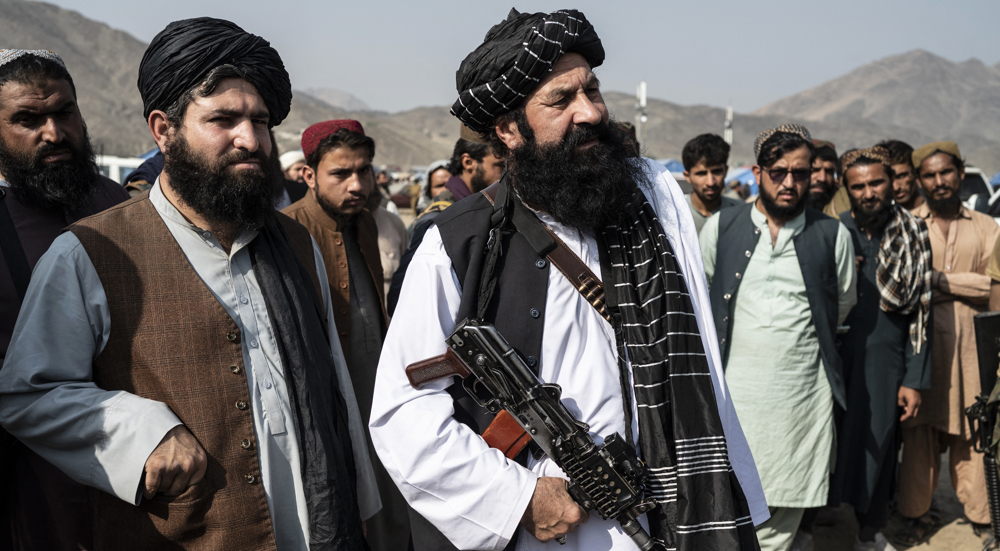
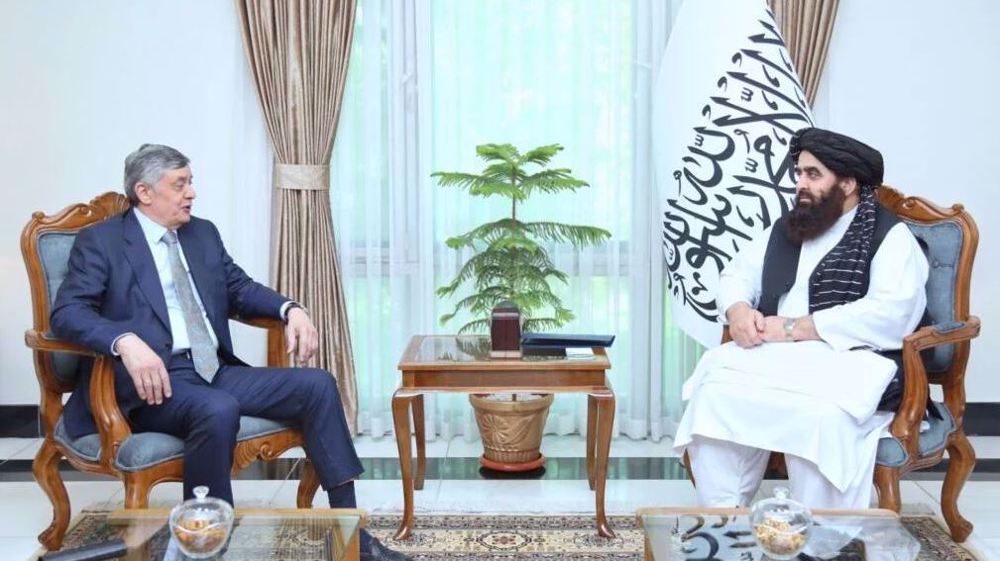



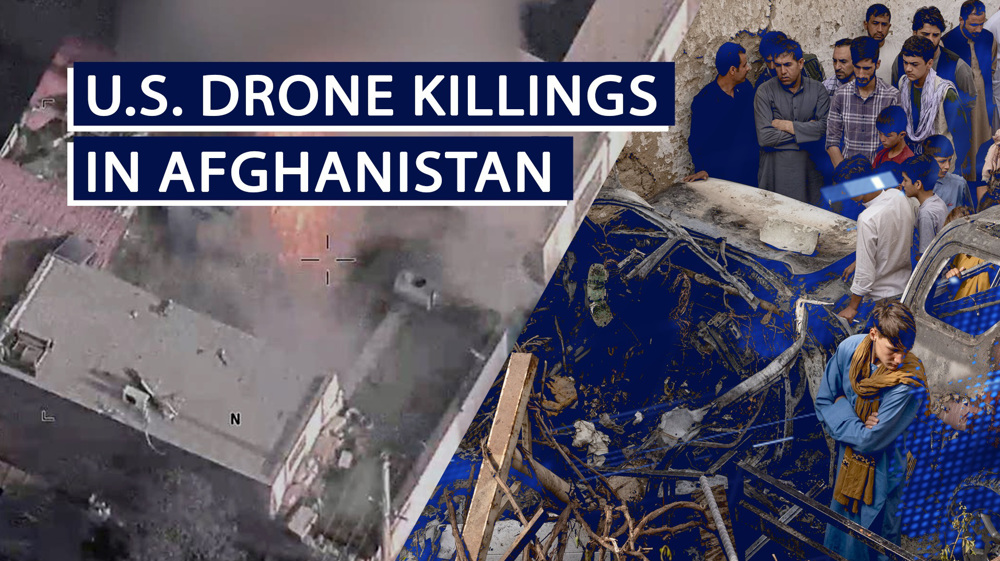
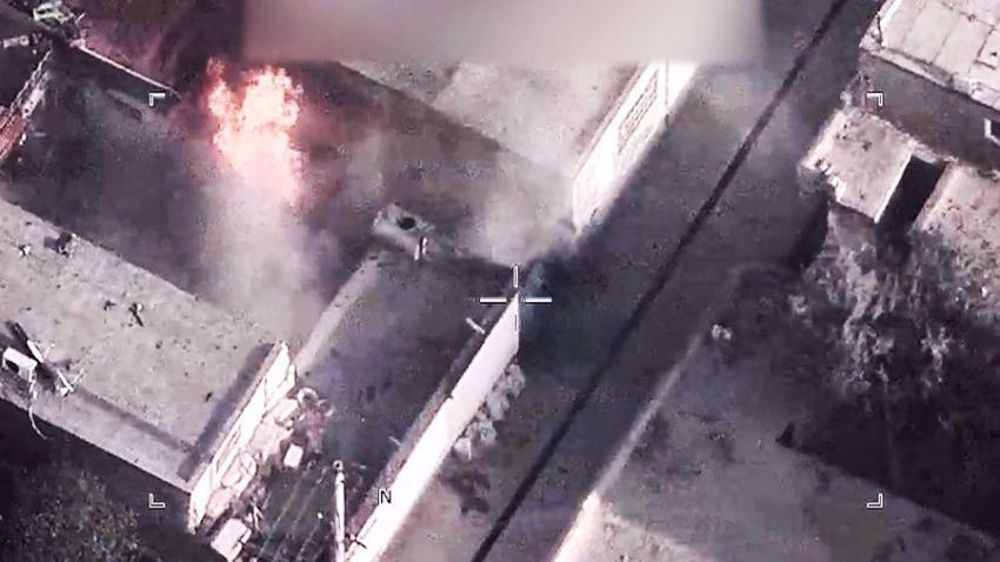
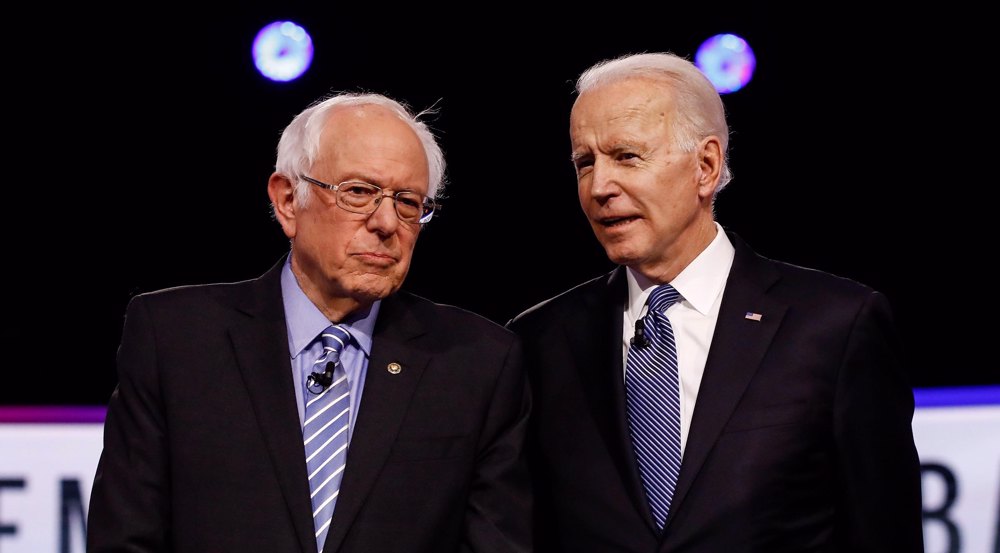
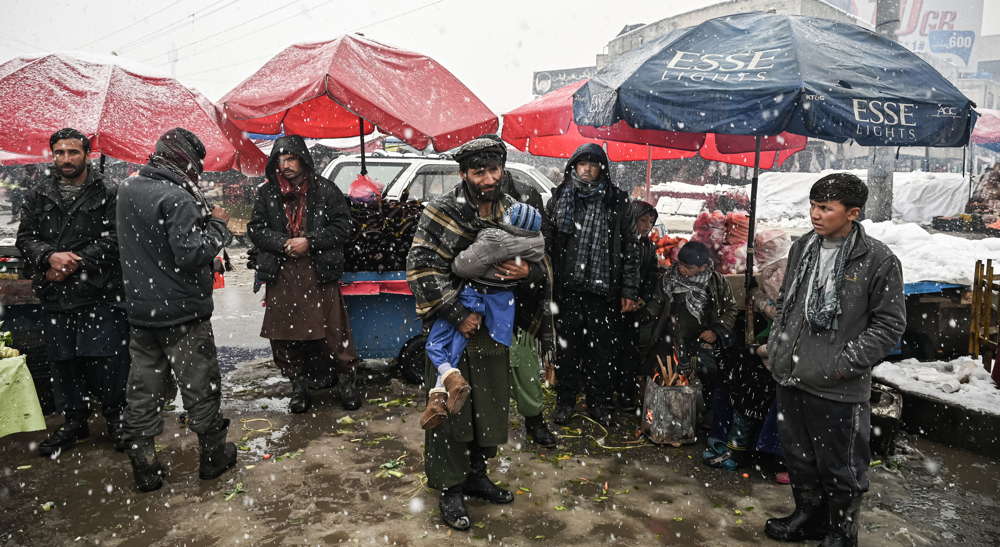
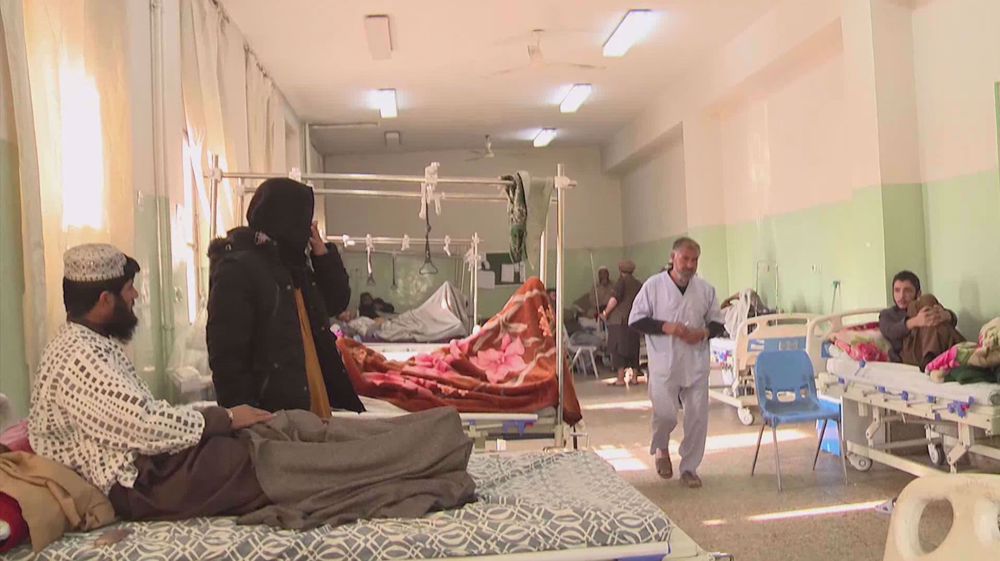

 This makes it easy to access the Press TV website
This makes it easy to access the Press TV website